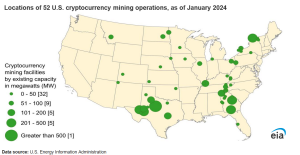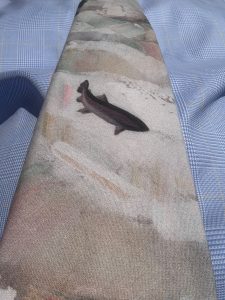There are a handful of ways that bills can die in the legislature. Sometimes they’re “returned to sponsor.” Other times they’re “held in committee” by a majority vote, or they can be simply “put in a drawer” at the will of the committee Chair.
But sometimes bills end up in limbo, where they’re not quite dead, because they can be quickly resuscitated.
There’s something called the Amending Order in the Senate, and it’s called General Orders in the House. What that means is that the bills are removed from the running agendas of the House and Senate, and when the Senate Majority Leader or the House Speaker decide to go into the Amending Order, the bills can be amended by a majority vote. Then they are returned to the regular lineup for a final vote on the amended bill, or on the original bill if the amendments weren’t adopted.
Alternatively, they can just sit in the Amending Order until the legislative session expires. For a couple of bills that were sent for amendment this week, we hope that’s exactly what happens!
One was a new bill that would limit local control associated with cryptocurrency mining operations. ICL has a long history of working to limit and mitigate negative impacts from mining, and while the mining for digital currency doesn’t involve moving mountains, it does impact electricity usage in a big way.
Another bill that I reported last week would penalize the Ada County Highway District Commission, overriding the will of voters by prematurely ending commissioners’ terms, and cutting their salaries.
Both bills were sent to General Orders by the House. We hope they stay put.
But as we’ve seen this session, even when a bill is voted down, like the dangerous Pesticide Manufacturers Immunity Bill (failed in the Senate on a 15-19 vote), like a zombie it can rise from the dead.
We’ve got updates on each of those bills, and others that are moving, along with a very special Tie of the Week, so…
Let’s get to it!

Crypto mining, RIP we hope
The Idaho Crypto Mining bill is similar to bills in several other states, and would roll out the red carpet in Idaho for cryptocurrency mining operations. Last week, it was sent to the amending order in the House. House leaders decided that either the bill needed a few tweaks, or that it simply lacked majority support needed for passage, so it was routed for amendment as a soft landing for the bill to die. ICL hopes it’s the latter.
As noted above, mining for cryptocurrency hasn’t historically been a big ICL focus, but we have worked on issues related to energy consumption. And if there’s one thing that cryptocurrency mining does, it’s consume energy. You see, large scale cryptominers set up industrial warehouses with thousands of computer servers running night and day.
First, a little background. Cryptocurrency, like Bitcoin or Ethereum, is a digitally-encrypted currency, backed up by a digital blockchain instead of by a bank or traditional financial institution.
So, how does crypto mining impact the environment?
While it doesn’t gobble up mountains and streams, it does gobble up a tremendous amount of energy. According to the US Energy Info Administration, energy usage has skyrocketed 300% in the last few years. In places where they’ve rolled out the red carpet to cryptominers (some can include 100,000+ computer servers), it has strained electric grids, led to higher emissions, and increased rates for others.

Some states have passed laws to exempt these operations from local planning and zoning rules, provided tax breaks, or other incentives. It’s led to a boom in construction. It’s also led to rattled windows and headaches (literally) for neighbors to these noisy operations. In Texas the constant thrum of large crypto mining operations have rattled communities across the state. The same has happened in Arkansas, in Georgia, to our neighbors in Montana, and just about everywhere they’ve been built.
The Idaho bill was touted at an informational session last week by the Satoshi Action Fund and the Idaho Freedom Foundation. Thankfully, the Idaho Legislature doesn’t appear ready to buy what they’re selling.

Wildlife bills move forward, mostly
This year, a number of bills that deal with wildlife are advancing. One that would exempt certain wildlife data from public records was signed by the Governor today (ICL supports it). Two others that deal with livestock predator compensation payments (ICL supports both) passed the House last week, and are awaiting approval in the Senate.
A poorly-worded Grizzly Bear Memorial (ICL opposed it) was scheduled for a hearing in the House Resources Committee last week. It would have hampered efforts to restore grizzly bears in Idaho, and ICL was prepared to testify against it. Thankfully it was pulled from consideration at the last moment.
ICL did testify against the Elk Farm Bill in the Senate Agricultural Affairs Committee last week. It removes requirements for double-fencing, even when a farm’s elk have been exposed to Chronic Wasting Disease. Despite opposition from ICL and the Idaho Wildlife Federation, the bill was approved along party lines.
We saw the same result after we testified in opposition to a Pro-Dam/Anti-Salmon Resolution that advanced out of the House Resources Committee. The non-binding resolution sends a message to the Biden Administration and Congressional leaders that the Idaho Legislature supports the four lower Snake River dams, regardless of the role that they play in driving Idaho’s salmon and steelhead to extinction.
Finally, we hope we won’t need to testify against a bill that would make life easier for private land poachers. Sen. Todd Lakey (R-Nampa) introduced a bill that would limit the ability for enforcement officers to enter private land. In other states where similar bills have passed, it’s been a gift to poachers, which is the last thing that Idaho’s wildlife needs.

Pesticide Immunity Bill on hold, but not being held
Last month, a dangerous Pesticide Manufacturers Immunity Bill failed in the Senate on a 15-19 vote. Days later, a slightly tweaked version resurfaced in the House. It was scheduled for a hearing last week, but was pulled at the last minute because it lacked the votes needed to advance.
In response, the multinational pesticide manufacturers, who produce pesticides that have been linked to a multitude of health issues, are leaning in hard. They’re pushing to advance the bill, which would bar the courthouse door for Idahoans to hold companies accountable for damage they cause.
The House Business Committee still could hear the bill in the weeks to come, but they should know that legal immunity for dangerous pesticides is clearly not in the public interest….especially if you tell them so!
Take Action today to let your legislators know how you feel!
In other news
House Minority Leader Rep. IIlana Rubel (D-Boise) offered an…ummm…errrr…tasteful debate on Rep. Heather Scott’s (R-Blanchard) Cannibalism Bill. She served up some witty puns that drew laughs from her fellow Representatives, as well as an objection from Rep. Scott. In the end, Rep. Rubel voted in favor of the bill, along with a majority of other House members and it’s on the way to the Senate. It’s unclear whether they will hear the bill, as they may not consider it… fully baked.
And maybe it’s not news anymore, but it’s notable. January was the 8th consecutive warmest month on record. 2023 was the warmest year on record. And you guessed it…February set the new record for warmest February ever recorded. And what’s even more worrisome is that global ocean temperatures are also smashing records, raising further concerns about the climate challenges.
Tie of the week! 
Many people have told me that my ties are one of a kind. (It’s a compliment, right??) While I do admit I have a collection of unique, rare, and vintage ties, I’m never sure if they truly are “one of a kind.”
This week’s TOTW certainly is. It was a gift from talented Idaho artist (and ICL’s first Artist in Residence) Rachel Tennalach. I broke it out for ICL’s testimony against the Anti-Salmon/Pro-Dam Resolution this week.
Rachel created a beautiful salmon-inspired painting, saw its potential to be transferred onto fabric, crafted into a custom necktie, and gifted it to ICL. She knew that she could count on us to stand up for salmon, which we did again this week.
Idaho’s landscapes, rivers, streams, fish, and wildlife have inspired artistic creativity for millennia. From the ancient petroglyphs preserved along Idaho’s canyon walls to modern landscapes painted in a downtown studio. (And speaking of art, ICL’s Artist in Residence program is back—and open for applications starting this Friday, March 15. If you know an artist who’s inspired by Idaho’s beauty, please encourage them to apply!) It’s a privilege for ICL to advocate for these special places and amazing critters that continue to inspire. So this week’s TOTW is dedicated to Rachel and all the artists out there who find inspiration in Idaho’s wildlife and wild places!
Until next week…Esto Perpetua,
Jonathan

